
Arquivo para January, 2015
Oscar 2015 keeps favorites
 Birdman and Boyhood as said above contains critical to holliwoodian heroes (Batman, Superman, etc) and fame at any price, and could be out, but maybe got too explicit conservatism of the Academy, also appear in Alejandro González Iñárritu smooth (“Birdman”), Richard Linklater (“Boyhood”) which appears as best director Bennett Miller (“Foxcatcher: a story that shocked the world”) and best actor Steve Carell, but got out for best picture.
Birdman and Boyhood as said above contains critical to holliwoodian heroes (Batman, Superman, etc) and fame at any price, and could be out, but maybe got too explicit conservatism of the Academy, also appear in Alejandro González Iñárritu smooth (“Birdman”), Richard Linklater (“Boyhood”) which appears as best director Bennett Miller (“Foxcatcher: a story that shocked the world”) and best actor Steve Carell, but got out for best picture.
With “American Sniper”, this is the fifth time that a production it is nominated for best film, the Academy shows his veneration by Clint Eastwood.
“Whiplash” is not entirely a surprise, since he had won the Sundance Film Festival award in 2014 and is well regarded by critics, tells the career story of a young drummer who dreams of being the best of his generation and brand your name in American music as did Buddy Rich, his biggest idol in the battery, but it becomes an obsession.
The documentary “The salt of the earth” scholar Wim Wenders making a biopic of the Brazilian photo-graph Sebastião Salgado, was nominated, directed also by the Brazilian Juliano Salgado, son of Sebastian (see photo above).
The film about Alain Turing
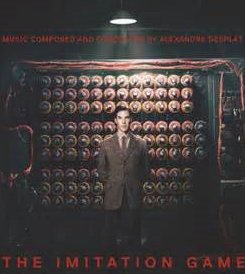 The film “The Imitation Game” announced, including probably competing for the Oscar (the list comes out today), is about the life of Alan Turing, considered a” father of computing “and who committed suicide at age 42, after being sentenced to castration chemistry, for being gay.
The film “The Imitation Game” announced, including probably competing for the Oscar (the list comes out today), is about the life of Alan Turing, considered a” father of computing “and who committed suicide at age 42, after being sentenced to castration chemistry, for being gay.
Turing is played by British actor Benedict Cumberbatch and work are focused on their work, important to the Allied victory in the conflict, it unveiled the Enigma machine that was codification of German messages as well as their contribution to the history of computing.
But the film also shows the problems faced by scientist for being gay.
His conviction was in 1952 and his suicide in 1954, under the penalty for “indecency” and the drugs made him impotent and caused him to develop breasts, which may have contributed to his death.
It was only in 2013 that he received a posthumous pardon of Queen Elizabeth II, after a long campaign to clear his honor, because in 2009 there was a petition that has made the Prime Minister Gordon Brown to publish a public apology for the terrible persecution.
The work was adapted from the book’s biography “Alan Turing: The Enigma” (Enigma was the Nazi machine that Turing deciphered), written by Andrew Hodges.
.
The premiere in Brazil is scheduled for February 5 and the list of 10 films nominated for an Oscar out today.
Golden Globe would change the Oscar 2015?
Maybe yes, the Birdman awarded (led the Golden Globes for best comedy actor and best screenplay), is a radical critique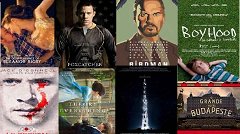 the pursuit of “fame” at any price, curiously starring Birdman curiously starring actor Michael Keaton also actor of Batman (1989) Batman Returns (1992) and remember?
the pursuit of “fame” at any price, curiously starring Birdman curiously starring actor Michael Keaton also actor of Batman (1989) Batman Returns (1992) and remember?
There are 10 films nominated for an Oscar, often the best drama at the Golden Globes won the Oscar for Best Picture, but the Academy is double the direct this critical and very well made?
There are 10 movies that are in contention for the Oscar for best picture, “The Grand Hotel Budapest” director Wes Anderson, who spent Birdman in best comedy at the Golden Globes, an Academy would retaliate rewarding Birdman or “Selma” (Golden Globe for best original song), a biopic about Martin Luther King Jr. a statement of the Academy since it is a rare black director Ava DuVarney, while “Forever Alice” which tells of a patient in early-onset Alzheimer’s (Julianne Moore won the globe for best actress in a drama) and the story of physicist Stephen Hawking on “the theory of everything” (played by Eddie Redmanyne, best actor in a drama), would be a reaffirmation of the Academy.
Have the other awarded a clear critique of American cinema is “Boyhood: From Childhood to the youth.” this is not exactly an anti-hero, but to recover humility in a satire of show business.
.
With a small budget, done in 14 years (with the same actors), the producer Jonathan Sehring referred to the director Richard Linklater as: “When he came to us with this project 14 years ago, I said yes, the man has so much humanity.
He is so humble and he dedicated much of his life to this film, “the actors did a movie for long 12 years, to the extent that grew in wisdom and humility.
“The Grand Hotel Budapest” by director Wes Anderson, which was a blow to “Birdman” tells story of a hotel porter involved in a murder and robbery mystery just won a prize at the Globe would be retaliation.
Run aside “The disappearance of Eleanor Rigby,” “Interstellar”, “Mr. Tuner “,” How to Train Your Dragon 2 “,” The Imitation Game “(on the precursor of computing Alan Turing),” Invincible “(directed by Angelina Jolie) and Big Eyes (serious biography of the painter Margaret Keane, directed by Tim Burton tomorrow out the list of 10 nominees.
See the winners of the Golden Globes
The 2015 Golden Globe awards were presented this Sunday, January 11, some already expected as Birdman (see our post), a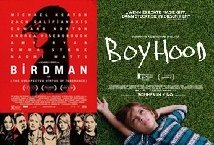 s best musical comedy actor (Michael Keaton) and best screenplay, best film Boyhood – From Childhood to Youth , best director Richard Linklater and best supporting actress Patricia Arquette.
s best musical comedy actor (Michael Keaton) and best screenplay, best film Boyhood – From Childhood to Youth , best director Richard Linklater and best supporting actress Patricia Arquette.
The award made by the Foreign Press Association in Hollywood had several references to North Korea and the attacks in France, with some actors including “Je Suis Charlie” in his speeches, see the other awards:
Best Actor – Drama
Eddie Redmayne (The Theory of Everything)
Best Actress – Drama
Julianne Moore (Forever Alice)
Best Motion Picture – Comedy / Musical
The Grand Hotel Budapest
Best Actress – Comedy / Musical
Amy Adams (Big Eyes)
Best Supporting Actor
JK Simmons (Whiplash – Perfection In Search)
Best Animation Film
How to Train Your Dragon 2
Best Foreign Film
Leviathan (Russia)
Best Soundtrack
The Theory of Everything
Best Original Song
Glory (Selma, John Legend and Common)
Best Series – Drama
The Affair
Best Actor – Drama Series
Kevin Spacey (House of Cards)
Best Actress – Drama Series
Ruth Wilson (The Affair)
Best Series – Comedy / Musical
transparent
Best Actor – Comedy Series / Musical
Jeffrey Tambor (Transparent)
Best Actress – Comedy Series / Musical
Gina Rodriguez (Jane The Virgin)
Best Miniseries / TV-Movie
Fargo
Best Actor – Miniseries / TV-Movie
Billy Bob Thornton (Fargo)
Best Actress – Miniseries / TV-Movie
Maggie Gyllenhaal (The Honourable Woman)
Best Supporting Actor – Series / Miniseries / TV-Movie
Matt Bomer (The Normal Heart)
Best Supporting Actress – Series / Miniseries / TV-Movie
Joanne Froggatt (Downton Abbey)
Cecil B. DeMille Award
George Clooney
Jolie, the Pope and “Unbroken”
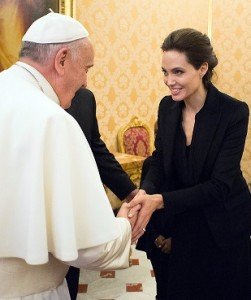 Angelina Jolie met with the pope, who attended a premiere of his new movie “Unbroken” which tells the story of an athlete and hero Louis Zamperini of World War II .
Angelina Jolie met with the pope, who attended a premiere of his new movie “Unbroken” which tells the story of an athlete and hero Louis Zamperini of World War II .
The meeting took place on the last day 7, she was accompanied only two children and no Brad Pitt, despite the meeting with the Pope, who expressed was expressed admiration for the message of peace which he transmits to the faithful, had already informed the Hollywood Reporter in 2012: “I have a great relationship with religion I oscillate between agnosticism and atheism.”, but it’s good points out that she’s UN ambassador for refugees.
The film tells the true story of Zamperini athlete who has suffered a plane crash in World War II, fighting at sea 47 days to reach land and when it is captured by the Japanese.
Unbroken (in Brazil Invencible) is the second work of Jolie as director, previously worked in is In the Land of Love and Hate (2011).
The film is an adaptation of the book written by Laura Hillenbrand, called “Unbroken: A World War II Story of Survival, Resilience, and Redemption”, published in 2010.
The launch is in cinemas worldwide on 15th, in Brazil there is still no release date.
Peter Sloterdijk and the absolute imperative
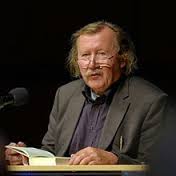 When grumble about individualism, consumerism and other isms, most often has ignored that this is the Western philosophy, and it is also based on our ethical (read the post about Martha Nussbaum) and there are clear examples: take his testimony, do your part, are forms of individualism often also in groups.
When grumble about individualism, consumerism and other isms, most often has ignored that this is the Western philosophy, and it is also based on our ethical (read the post about Martha Nussbaum) and there are clear examples: take his testimony, do your part, are forms of individualism often also in groups.
.
What we should do is to seek collective action together with humanity, I say in networking.
.
Peter Sloterdijk calls attention to the categorical imperative, created by the philosopher Emmanuel Kant at the beginning of modernity, Sloterdijk explains: “Kant wanted to reconcile the selfishness of private interests and the demands of the common good, while enabling the coexistence of all rational creatures in the legal context of bourgeois society “(pp. 53), the small booklet” The world has no more time to lose” the brazilian edition is make Civilização Brasileira publisher, in 2014.
This booklet, published in France in 2012 with “Le monde n’s plus temps to perdre” coordinated by Sacha Goldman, write articles Michel Rocard, Mireille Delmas-Marty, René Passet, Edgar Morin, Michael W. Doyle, Stéphane Hessel Bernard Miyet addition to Sloterdijk, which as the title says the urgency of global governance.
.
Sloterdijik known for controversy with Heidegger in his “Rules for the human Zoo” writes about this booklet, which is the absolute imperative to eliminate among men “situations in which he was a poor creature, miserable, wretched, abandoned”.
.
Remember the philosopher Hans Jonas, seeing the ecological crisis, which updated the categorical imperative guiding him to the future and the relationship policy with nature, but he remembers two recent phenomena: “a technical and other political, came profoundly transform your reach “(p. 64),” the first of immaterial nature, “we are coming out of the Neolithic”, and the second of a political nature, “started in the 1980s, is none other than the release of capital movements in the world, which, allowing the concentration across national borders, leading to the formation of a planetary financial power superior to the States “(p. 66).
What all authors of this booklet ask, is a “caring and responsible global governance” is worth reading.
Boris Broys and postmodern art
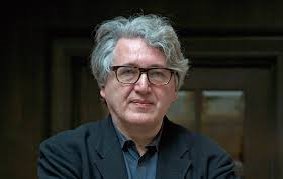 It seems that there is little to say about art, or is there perhaps a confusion between the limits of what is guaranteed and what is not, but I think Boris Groys and Jacques Rancière (gets to last post) can rather say something.
It seems that there is little to say about art, or is there perhaps a confusion between the limits of what is guaranteed and what is not, but I think Boris Groys and Jacques Rancière (gets to last post) can rather say something.
Boris Groys is a German 68-year-old study of mathematics from 1965 to 1971 at the University of Leningrad (now St. Petersburg), working on a lot of research and attended the Moscow Conceptualism movement and published in 1979 the essay “Romantic Conceptualism of Moscow “then in 1981, was doing his PhD in philosophy at the University of Munich.
Groys is a member of the Association Internationale des Critiques d’Art (Ahikam), and has served as a partner of numerous institutions, including the International Research Center for Cultural Studies (IFK) in Vienna, Austria, Harvard University Art Museum, and University of Pittsburg.
Wrote the controversial “The Communist Postscript” (2010) and “Introduction to Antiphilosophy” (2012), but his little essay on Art in the age of digitization, for me an important work, which analyzes the famous work of Walter Benjamin “The Work of art in the Age of Mechanical reproduction “which assumes the possibility of a technically identical and perfect reproduction of form that does not allow a distinction between the original and the copy (Groys, 2010).
He teaches since 1994, philosophy and media theory at the Academy of Design (Hochschule für Gertaltung), which is directed by Peter Sloterdijk in Karlsruhe (Germany) our next post.
Boris Groys in his work art and philosophy have different treatments, for him, both one and the other mainly deal with issues that do not admit a permanent solution and therefore are immortal, in this approach, objectivity and subjectivity are mixed, and this perspective agreed.
Cultural requirements are not fictitious, say to a spectrum of things, and almost always the goal of artists and thinkers is to overcome what is considered more advanced, it has something dead in a field, and so position yourself in the best culture to the point which makes mortal immortal for having fulfilled the imaginary requirement of his time, and that this immortality is artificial, has the effect of political awareness
So what Groys proposed is that the symbolic space of art must include the dead, represented by his works, images, theories, attitudes, languages.
So the real cultural pressure does not come from positions of power, but from the dead and then it is a much more serious case that living as they continue to disturb this as creators
It’s what makes dead artists still in competition; as they, want, for example, get to have their whole issues in their libraries.
Ranciére: image and technology
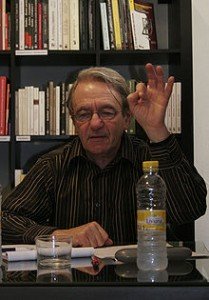 Jacques Rancière argues that the image already met its fate (The Future of the Image, 2007) and it is not fetishism, for it continued their power directly affect man and at the same time are record and marks in history to educate and transform .
Jacques Rancière argues that the image already met its fate (The Future of the Image, 2007) and it is not fetishism, for it continued their power directly affect man and at the same time are record and marks in history to educate and transform .
But it is important and possible to put them in a relationship to be, if we remember the category difference and repetition (Heidegger, Deleuze and others), the temporal image operations and the time-image, I prefer the category dynamic image, it can be think that this belongs to the future emanating from it.
It is no longer the painter of the frame or photo, although they persist and continue to have an ontological importance of recording, but now one can speak in combinations and breaks the visible and speakable ad infinitum, as Rancière thinks.
What Rancière says in the background, of course is just a vision of an interpreter, is that politics is not just a struggle for power, but should always have a certain distribution of the sensible, a redefinition of ways to view and organize the real, and this are also the networks and the virtual.
This particular form of the sensitive agency that gives visibility to things in a way that previously they had not, and opens the person who appropriates the new ferrramentas in good ways to work on the power to speak and act in social alliances, not just party or sectorized groups.
In reading Ranciére notes the concern with the possibility of aesthetic acts were likely always new ways of feeling common to new forms of political subjectivity (Rancière,2009).
Jacques Rancière: Politics, History, Aesthetics (2000). Eds. Phil Watts and Gabriel Rockhill. (Durham & London: Duke University Press, 2009), and I think that technologies enable and empower this possibility.
Martha Nussbaum and the fragile well
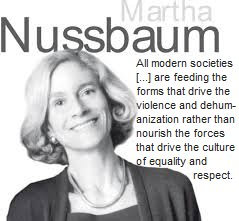 In the interval of time that separates the publication of the book “The Republic of Plato: the good society and the desire deformation” in 1986 and the translation into Portuguese in Porto Alegre, Bestiario editor (2004), there was the public recognition the contemporary philosopher Martha Nussbaum, especially in the Anglo-Saxon world.
In the interval of time that separates the publication of the book “The Republic of Plato: the good society and the desire deformation” in 1986 and the translation into Portuguese in Porto Alegre, Bestiario editor (2004), there was the public recognition the contemporary philosopher Martha Nussbaum, especially in the Anglo-Saxon world.
Martha is a scholar of classical antiquity thought and said in an interview: “All modern societies […] are feeding the forms that drive the violence and dehumanization rather than nourish the forces that drive the culture of equality and respect” .
In his book the fragility of the good (or goodness, reflect some) dialogues with the “moral fortune” (moral luck) introduced in the Anglo-Saxon thought by Bernard Williams and whose main target ethical conceptions derived from Kant.
.
As observed by the very Nussbaum, “goodness” of the title should be understood as “human well” to eudaimonia, and not as “goodness of character,” so trasnlate as “well”.
Williams’ critique of the self-sufficiency of Kantian ethics brings with it the possibility to point to a certain dualism present in this design where the should be and be the ideal and real translate into two poles: a purely subjective, the intention of the agent and normative guidance the will and the other, the objective element, the affection of the act and its discover in reality.
.
Martha Nussbaum, in taking the category of “moral fortune” changes the focus for Williams, instead of reflective consciousness of the moral subject, turning his attention, not exclusive to impasses goals resulting from the tension between the pursuit of well-moral life successful and the contingencies of his achievement, overcoming dualism.
The three issues presented in the book are opening: the Aristotelian method: approaches of human things, creating a certain phenomenological ethics (), as an inseparable part of a good life: love, friendship, political activity etc, so things taken how valuable are plural, and thirdly the emoções, desires, feelings in binding to objects, by definition, private and contingents, exposing us to the precariousness and the constitutive these indeterminacy.
Although philosopher, Martha is practical and wants to penetrate in everyday moral, and writes, “motivated by a keen sense of the problems caused in human life by fortune out of control” (Nussbaum, 2010, p 80.).
Martha discussed in chapter 4 the notion of tuch in relation to the concept of techn (expertise, science) based on the ideas conceived in the fifth and fourth centuries BC as a form of control over the tuch, it would be interesting but does not, the relationship with techné, but I see some problems in the Brazilian translation.
Thus the author to propose a rereading of the Aristotelian ethics linked to the world of the tragedy to be anthropocentric, is compelled to take the fortune as constitutia condition of life, and it has an impact on the condition the understanding of the role of practical rationality.
For her the limits of the discourse of moral philosophy are given by human limits “its matter is the human good, or the good life for human beings,” this well exposed to fortune and chance, is fragile.
The Trinitarian Ontology of Piero Coda and Evil
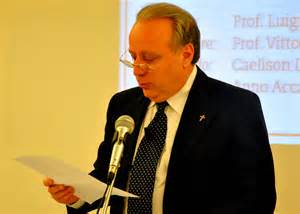 Evil, I write in capitals because it is the ontological category in which the bad of our enemies and everyday slips are just components, must be seen within the Christian tradition and many other religious traditions as what should be despised, fought and ultimately eliminated, and this is a lack of Trinitarian ontology.
Evil, I write in capitals because it is the ontological category in which the bad of our enemies and everyday slips are just components, must be seen within the Christian tradition and many other religious traditions as what should be despised, fought and ultimately eliminated, and this is a lack of Trinitarian ontology.
But if we understand the figure of the Trinity in the Christian tradition, the relationship of three persons in one being, this takes us immediately to agapic love as the basis of religion and that is where we review the misconception of God and a way of religion.
It would be possible to understand this purely philosophical way, yes and no, but because we can understand the Father as someone with some authority, his son as immanent to the Father, and the Holy Spirit as a being with a force capable of resolving differences and this authority and immanence relationship establishing communication and full communion of the three beings.
Not because we would be reducing the love agapic of three beings, who in a very profound way do they are one Being and this is not understandable without the light of faith.
Piero Coda uses a category of the Focolare Movement’s founder, who is the figure of Jesus forsaken to make this epiphany an everyday relationship with all beings and thus creates a Trinitarian ontology, which is able to establish a relationship between the express Logos in Jesus and fully realized in his figure when we lose heart and give the pain and suffering on the cross, not more calls God Father, but only God: “my God, my God why have you forsaken me” says the Biblical account.
What is the practical lesson of this biblical figure power would say something paradoxical God is no longer God, but man, a bridge between man and the Lord takes place, and continues to be held in all the pain, suffering and humanitarian disasters, then the Trinitarian ontology penetrates in daily life.
To break the “wall of hostility” (Eph 2: 14) Jesus at that time creates a new relational field, everyone has access to the Other (God) in dynamic and reciprocal motion, and this field can extend to all mankind, and performs already today dialogue between religions and cultures.
Coda says: ” in qualche modo ci é comunicata nella storia l´eterna circulazionde d´amore dei Tre … il loro aprirsi ala storia degli uomoni” (Dio uno e trino, Edizione San Paolo, 1993, p. 141).

